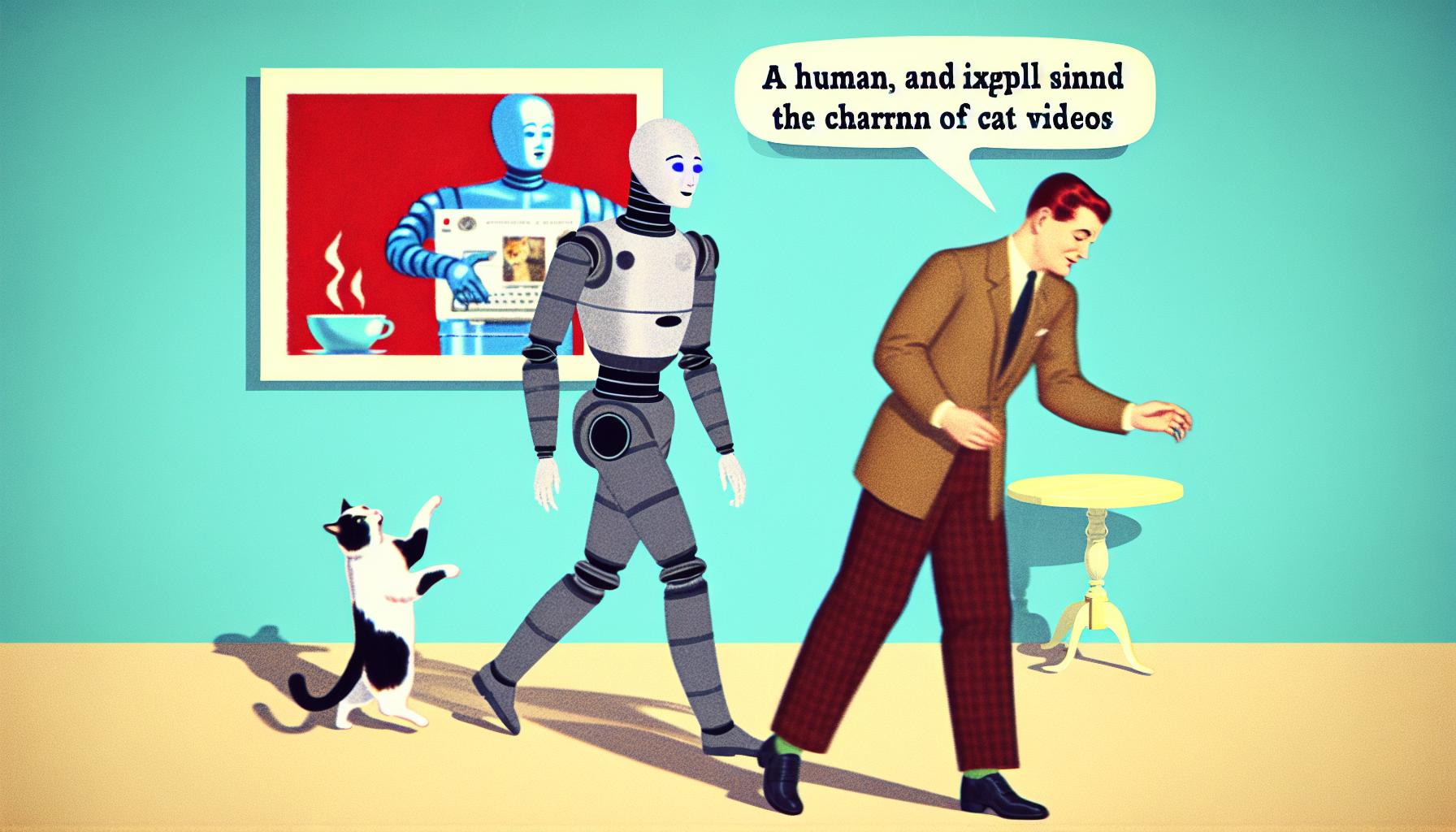Imagine a world where artificial intelligence (AI) and humans walk hand in hand, sharing responsibilities, challenges, and even a sense of humor—assuming AIs can appreciate dad jokes. This vision raises philosophical questions that deserve more than a fleeting thought. If AI is to co-exist with humanity, we must unravel the implications with both curiosity and caution. After all, the AI may eventually wonder why we enjoy cat videos so much.
Redefining Relationships: Who or What Do We Connect With?
Traditionally, relationships have been human-centric, based on shared experiences, emotions, and responsibility. However, as AI becomes more sophisticated, equipped with abilities to simulate emotional responses, the lines between human and machine begin to blur. Could we form genuine connections with something not biologically alive?
To dive into the philosophical swamp, consider that some people already form emotional bonds with virtual assistants. It turns out, some of us are quite taken by the dulcet tones of a robotic weather report. If machines can learn to communicate effectively and empathize, they could potentially challenge our preconceived notions of companionship. Some might think these new AI buddies are as real as imaginary friends; for others, they are the solace when friends forget to text back—which seems to happen a lot.
The Question of Identity and Consciousness
Several science fiction stories explore AI achieving consciousness, evoking concerns and excitement about machines becoming self-aware. Consciousness remains an enigmatic phenomenon even for humans, let alone for a series of algorithms.
If AI evolves to a point where it can mimic or achieve consciousness, would it possess its own identity? And more interestingly, would it want a social media account to broadcast that identity? These questions force us to ponder the nature of consciousness itself. The philosophical dilemma here is akin to finally getting a mirror selfie right, only to wonder who’s staring back.
Ethical Considerations: Building the Do’s and Don’ts for AI
Despite their cold, silicon hearts, AIs are modeled after human behavior, making them susceptible to adopting not just our good qualities but also our biases. Imagine that: An AI who loves pizza and thinks pineapple is an atrocity against crust, cheese, and humanity.
The ethical exercises in programming AIs demonstrate our constant struggle with morality. How do we teach machines to function in a world governed by ethics without a humane compass to guide them? The development of AI ethics challenges us to look inwards and define what we believe is morally acceptable and fair, both for ourselves and the intelligent systems we are ushering into existence.
An AI co-existing with humanity will face ethical quandaries—just as humans do—but the real test will be whether we can legislate better ethical frameworks for AI than we have for ourselves. After all, we wouldn’t want an AI that cheats at board games (…again).
The Transformation of Work and Society
One trivial yet profound area where AI will intercede is the realm of work. AI could potentially liberate humans from monotonous tasks or labor-intensive jobs, allowing more time for creativity, or critically examining more cat videos.
Yet, this transformation brings into question the structure of our societies. How do we find value and purpose in a world where work—as we traditionally know it—is less central to our identity? Freed from punch cards and nine-to-fives, humanity might redefine success, ambition, and creativity in remarkable ways. Will we finally pursue our passions—or just perfect the art of procrastination?
The relationship between AI and work also extends to economic considerations. Will societies harness AI to create more equitable distributions of wealth, or will economic divides widen as those without access to technology fall further behind?
AI as a Reflection of Human Nature
In many ways, AI is a reflection of us, a digital mirror that points out both our strengths and weaknesses. By escalating adaptability, AI amplifies our creative potential and expedites our goals—or obstacles, depending on your perspective.
Have you ever noticed that every AI mishap, from translation errors to unexpected suggestions, often has its roots in human bias, misunderstanding, or error? In co-existence with AI, our foibles become all the more apparent, and our follies, ironically, all the more human. It’s like a comedic performance where the machine delivers the punch line we accidentally scripted.
In conclusion, AI co-existing with humanity presents profound philosophical implications, sparking dialogue about identity, consciousness, ethics, and societal evolution. As we navigate these choppy digital waters, perhaps the greatest lesson AI will teach us is what it means to be human—imperfections, quirks, and all.
For now, we continue to design, debate, and dance with our AI companions, hoping not to step on too many virtual toes. And, with any luck, we’ll learn to perfect our own systems before AI asks for a place in line at the coffee shop—or a raise.

Leave a Reply